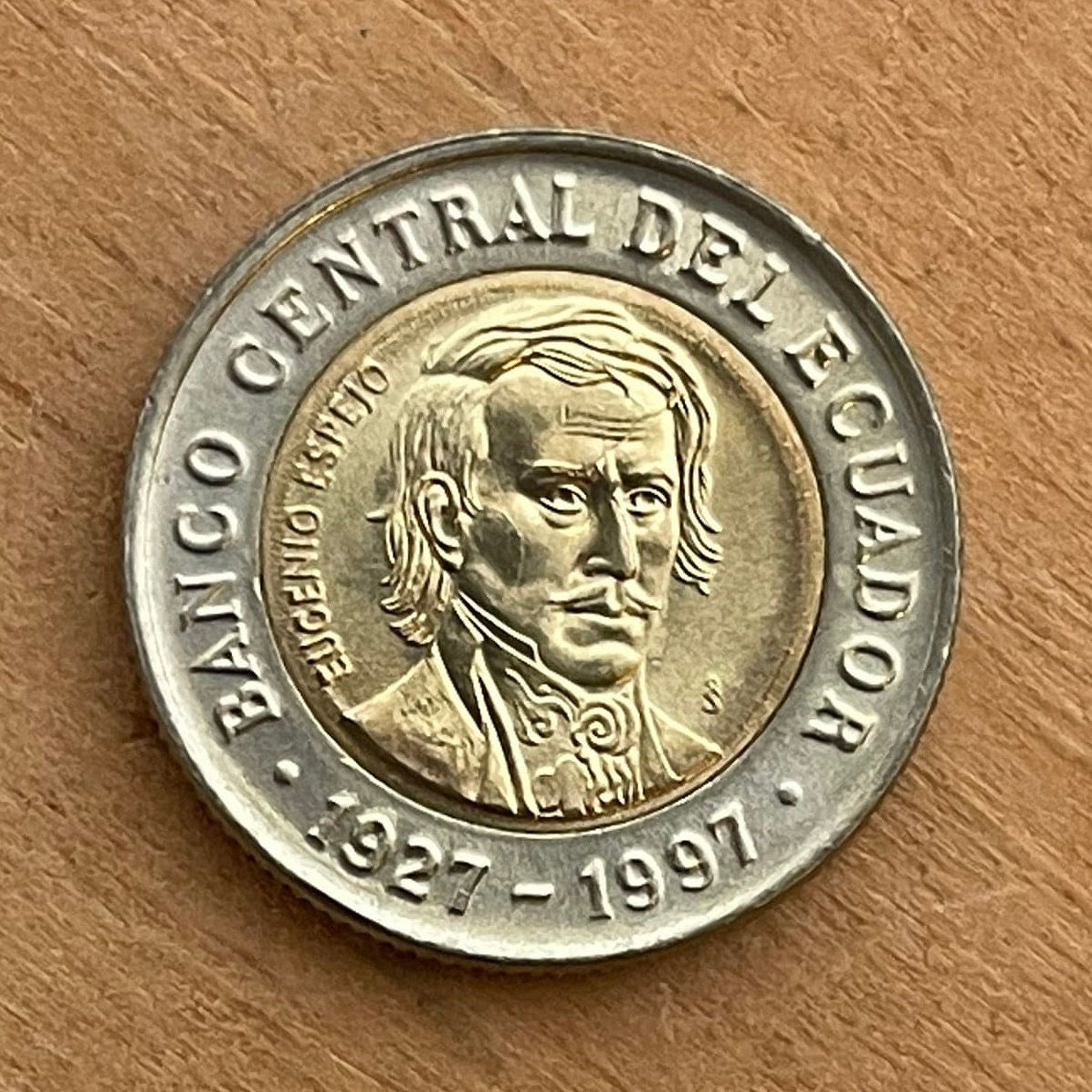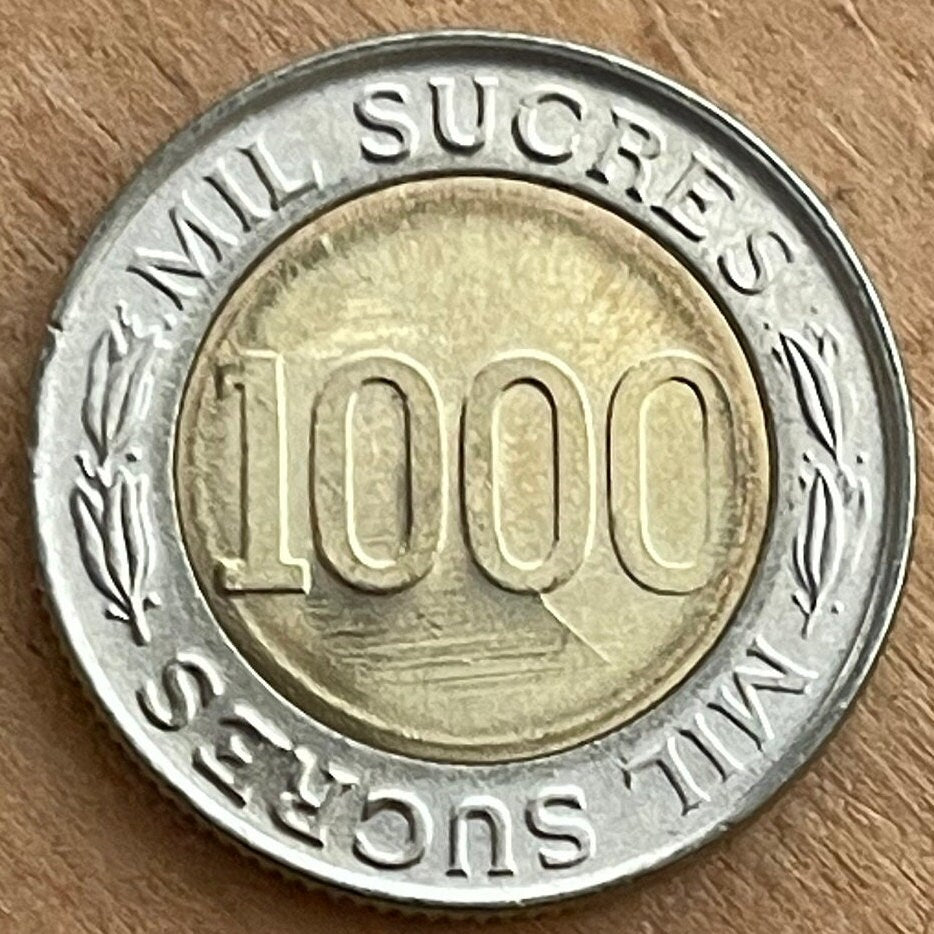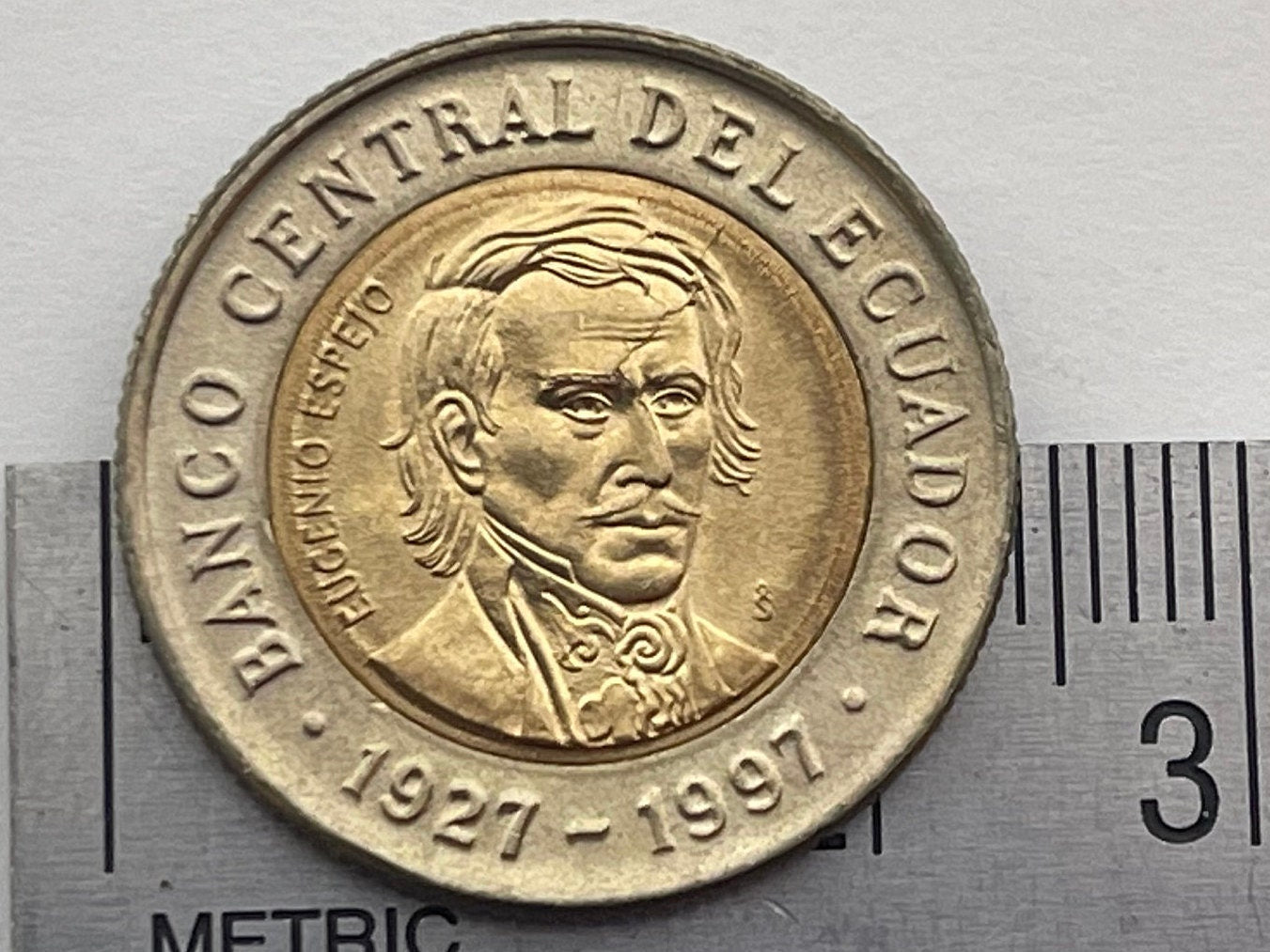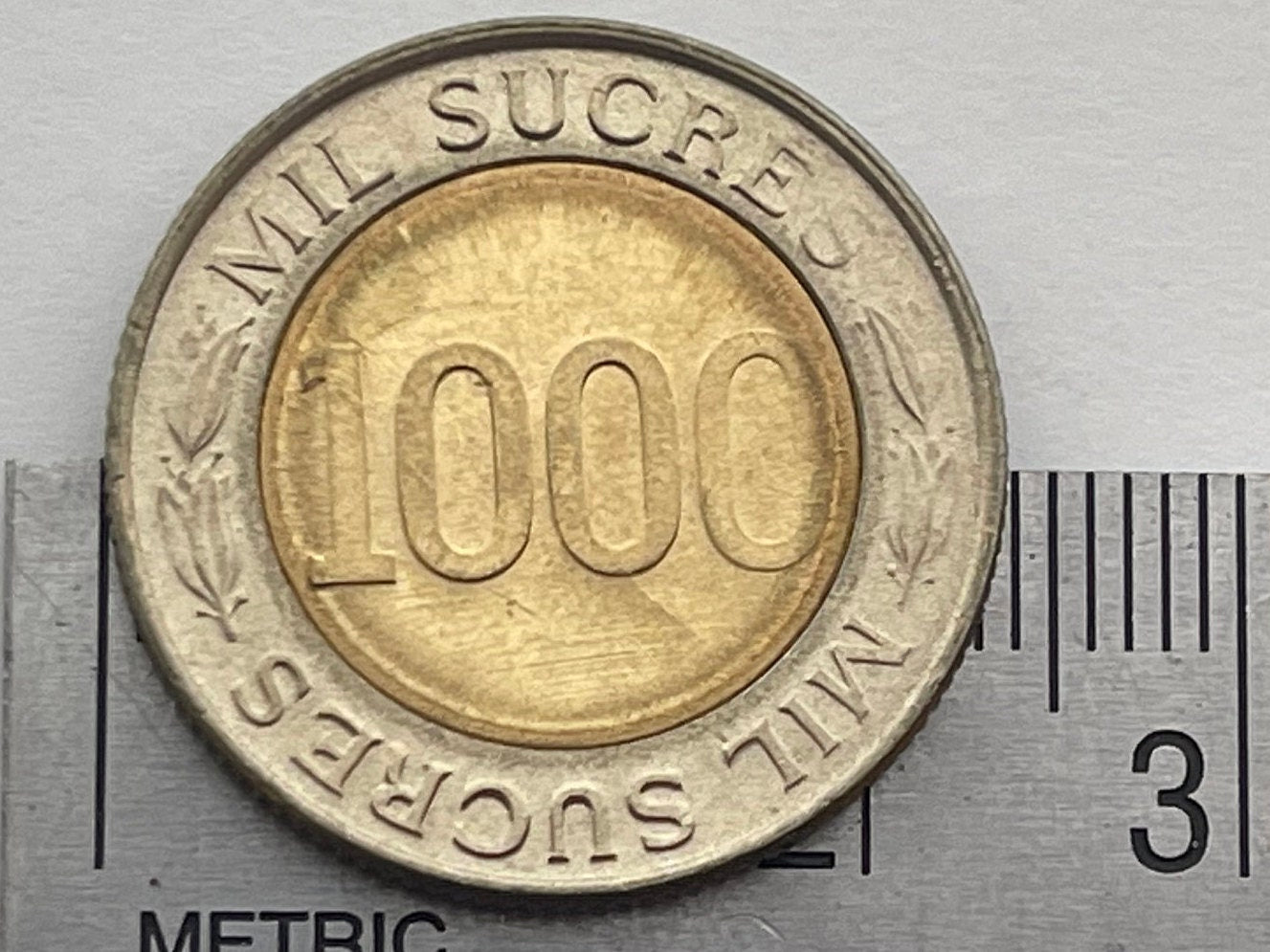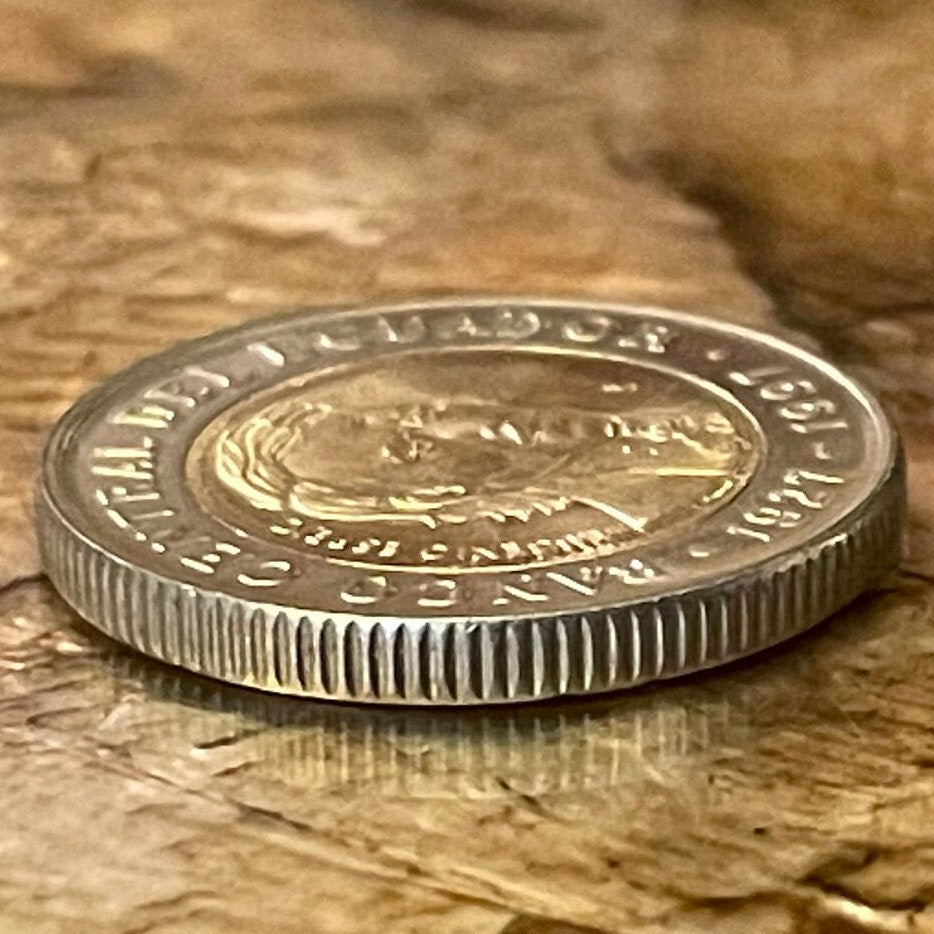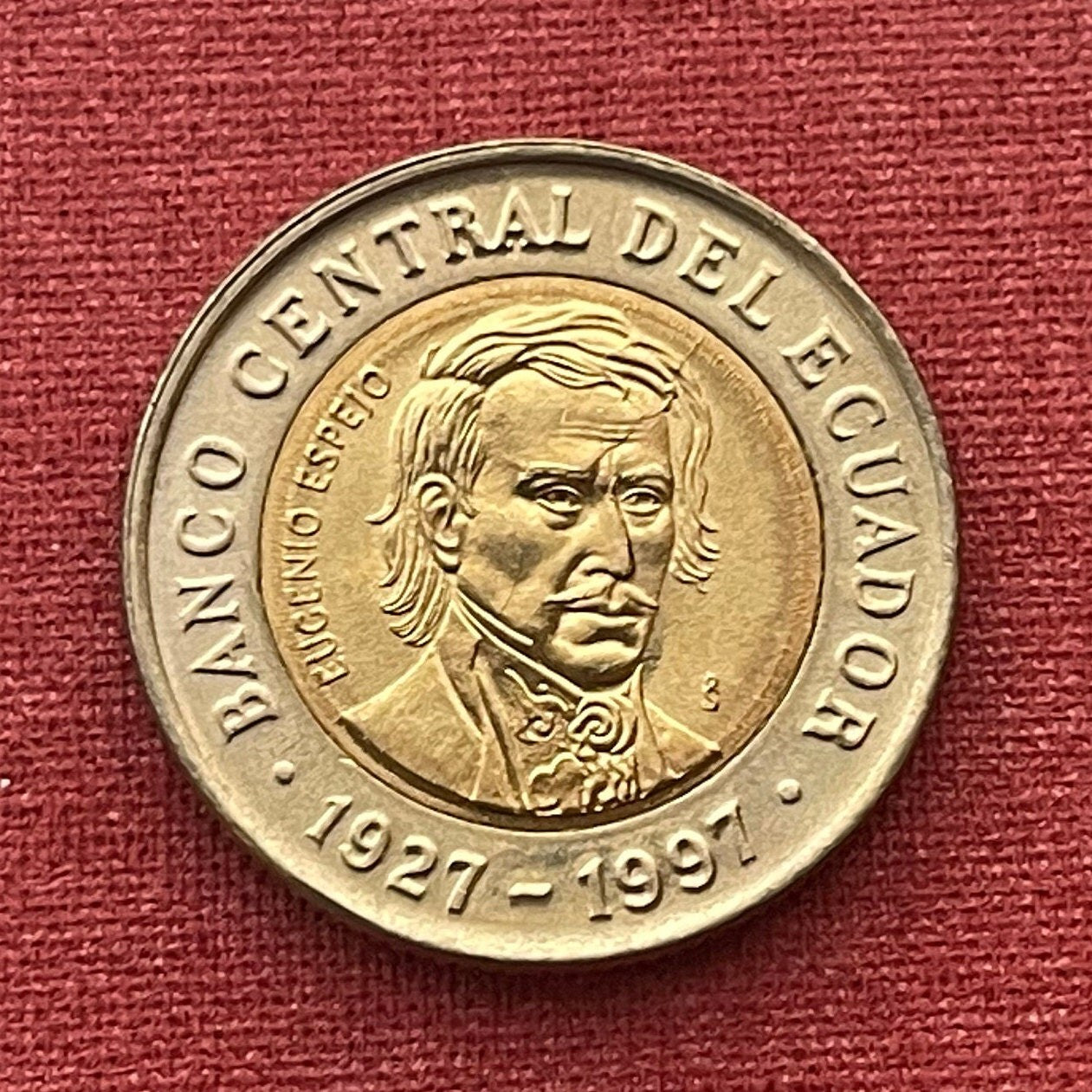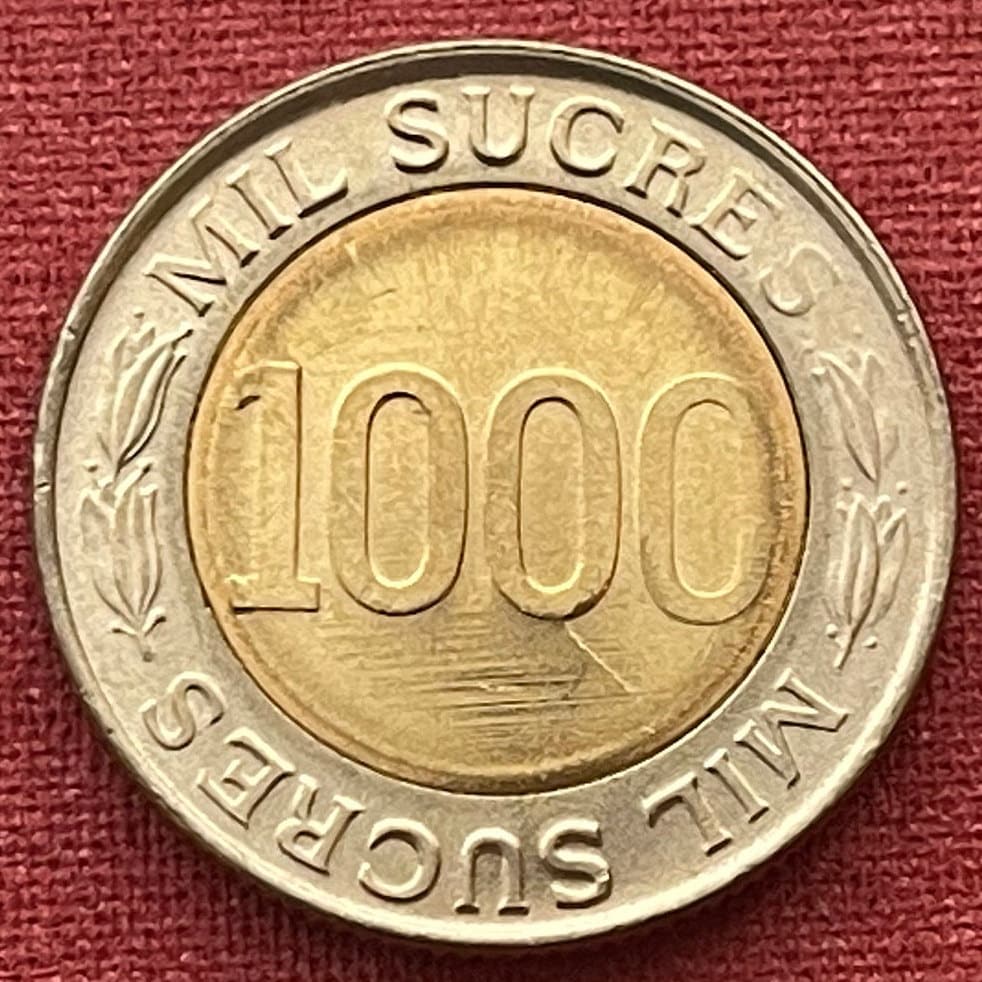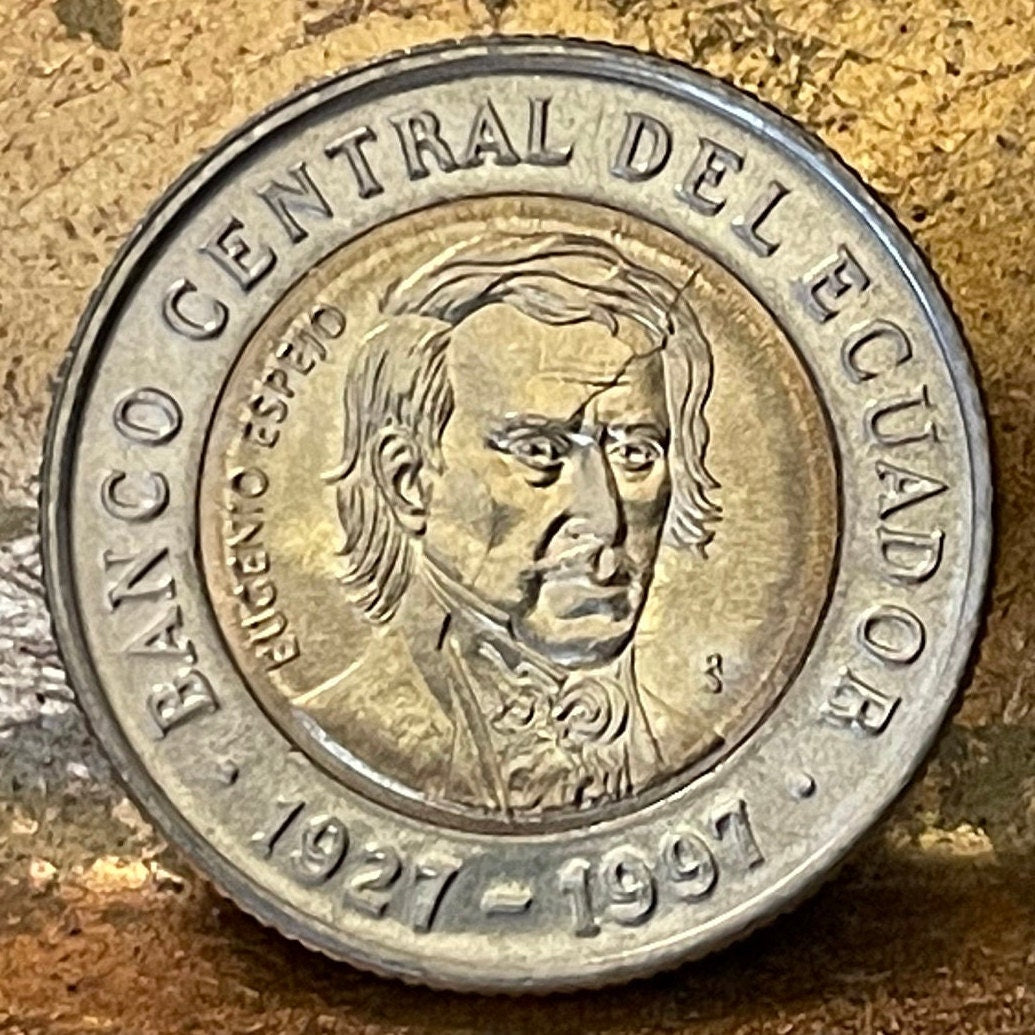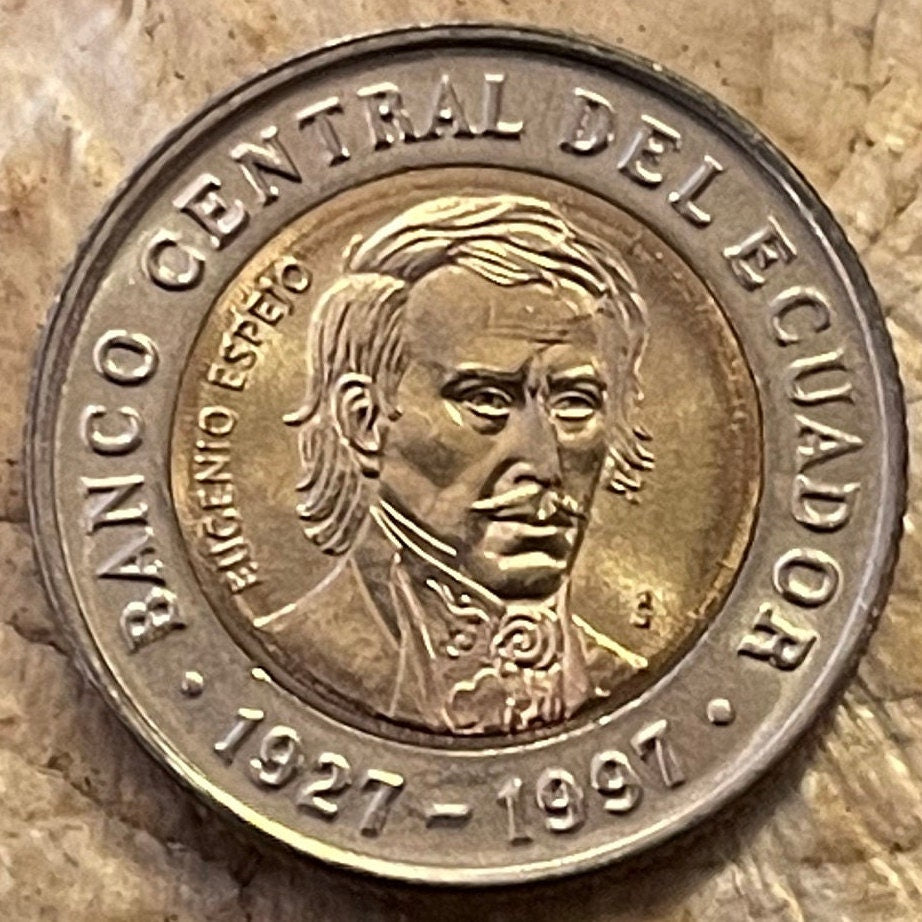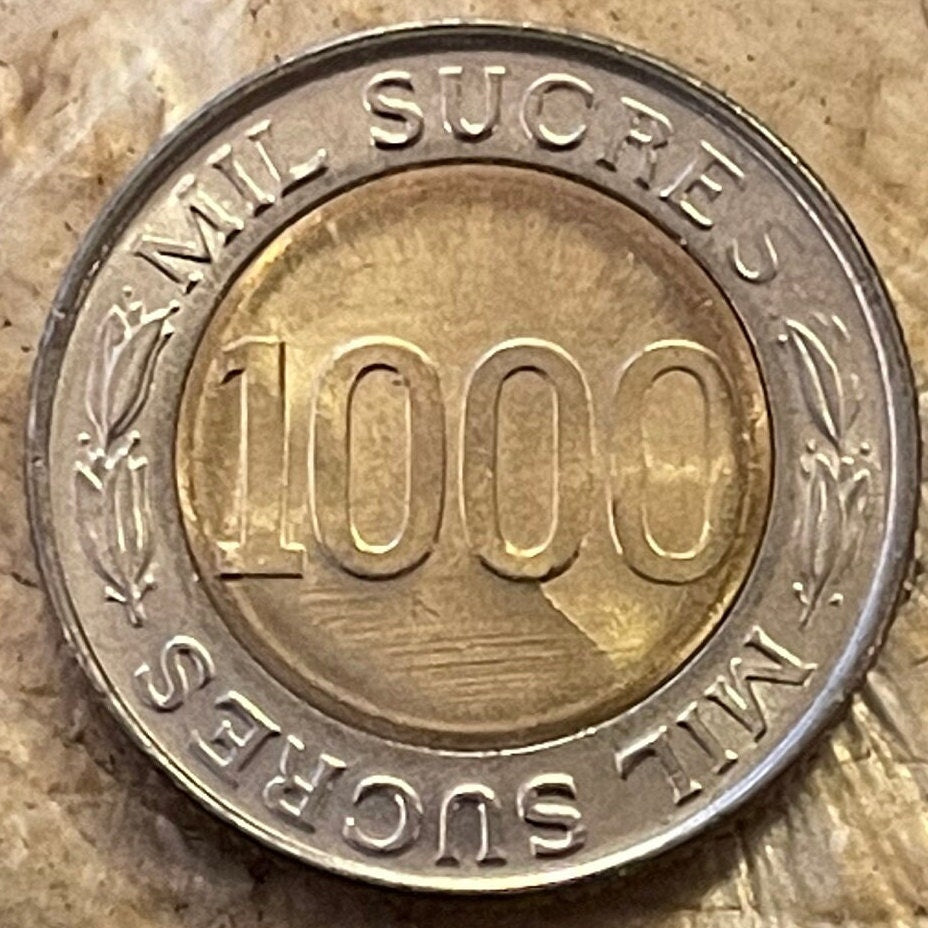elemintalshop
Scientist Reformer Eugenio Espejo 1000 Sucres Ecuador Authentic Coin Money for Jewelry and Craft Making (Bimetallic) (1997)
Scientist Reformer Eugenio Espejo 1000 Sucres Ecuador Authentic Coin Money for Jewelry and Craft Making (Bimetallic) (1997)
Couldn't load pickup availability
Scientist Reformer Eugenio Espejo 1000 Sucres Ecuador Authentic Coin Money for Jewelry and Craft Making (Bimetallic) (1997)
Commemorative issue - 70th Anniversary of the Central Bank
Obverse: Portrait of 18th century scientist and politician Eugenio Espejo (1747-1797)
Lettering: BANCO CENTRAL DEL ECUADOR
EUGENIO ESPEJO
1927 - 1997
Translation: Central Bank of Ecuador
Eugenio Espejo
1927 (year of creation of the Central Bank) - 1997 (year of coin issue)
Reverse: Denomination in digits, denomination in words (twice)
Lettering: MIL SUCRES
1000
MIL SUCRES
Edge: Reeded
Features
Issuer Ecuador
Period Republic (1830-date)
Type Circulating commemorative coin
Year 1997
Value 1000 Sucres (1000 ECS)
Currency Sucre (1884-2000)
Composition Bimetallic: aluminium-bronze centre in copper-nickel ring
Weight 7.25 g
Diameter 23.7 mm
Thickness 2.35 mm
Shape Round
Technique Milled
Orientation Coin alignment ↑↓
Demonetized 10 September 2000
Number N# 1772
References KM# 103, Schön# 96
Wikipedia:
Francisco Javier Eugenio de Santa Cruz y Espejo (Royal Audiencia of Quito, February 21, 1747 – December 28, 1795) was a medical pioneer, writer and lawyer of mestizo origin in colonial Ecuador. Although he was a notable scientist and writer, he stands out as a polemicist who inspired the separatist movement in Quito. He is regarded as one of the most important figures in colonial Ecuador. He was Quito's first journalist and hygienist.
As a journalist he spread enlightened ideas in the Royal Audiencia, and as a hygienist he composed an important treatise about sanitary conditions in colonial Ecuador that included interesting remarks about microorganisms and the spreading of disease.
Espejo was noted in his time for being a satirist. His satirical works, inspired by the philosophy of the Age of Enlightenment, were critical of the lack of education of the Audiencia of Quito, the way the economy was being handled in the Audiencia, the corruption of its authorities, and aspects of its culture in general. Because of these works he was persecuted and finally imprisoned shortly before his death.
*****
Wikipedia:
The Central Bank of Ecuador (Spanish: Banco Central del Ecuador (BCE)) is the central bank of Ecuador. It was the issuer of Ecuadorian sucre money until dollarization in 2000.
The Revolución Juliana (July 9, 1925) initiated the process of founding a national bank issuer. The country's crisis, caused by non-convertibility of the currency, banknote printing without reserves to support the increase in currency, inflation, speculation, abuse of credit, unbalanced payments, lack of official control over the banks and banking anarchy and strife, required cleaning up the currency situation.
Share
